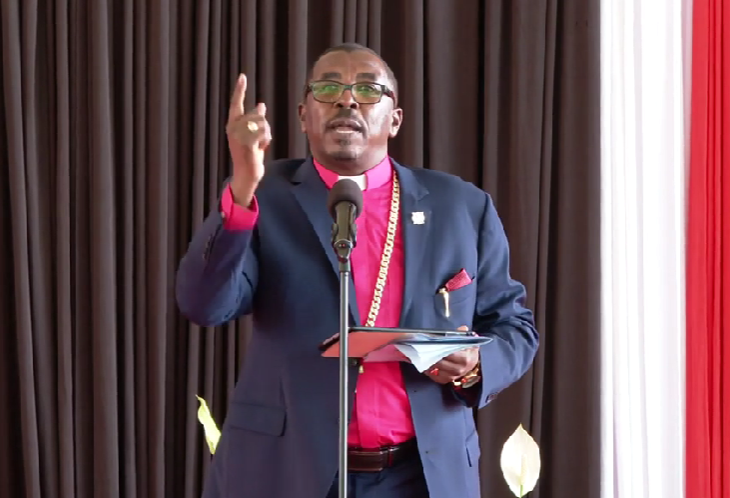The ongoing debate over President William Ruto’s proposal to construct a mega church within the State House compound in Nairobi has intensified, drawing strong opinions from both supporters and critics. The latest to speak out in support of the initiative is Bishop Samuel Ngacha, who on Wednesday labelled those opposed to the plan as “anti-Christ.”
Bishop Ngacha made the controversial remarks during a gathering hosted by President Ruto for bishops, pastors, and evangelists from the Federation of Evangelical and Indigenous Christian Churches of Kenya. The meeting, held at State House, was intended to rally support for the proposed project.
“There are two churches at State House made of iron sheets one Catholic and one Protestant. The President has been clear that all he wants is an upgrade,” said Bishop Ngacha, defending the construction plan as a continuation of Kenya’s Christian tradition.
He accused critics of hypocrisy, suggesting that some of the loudest voices against the proposal are the same individuals who previously visited State House to pray during colonial times.
“We have allowed those making noise to continue, but I wonder why they do not want an altar here,” he said. “If you see anyone who is against an altar, they must be anti-Christ.”
Citing scripture, Ngacha referenced a biblical passage where Jesus’ disciples questioned those casting out demons in His name. He noted that Jesus instructed them not to stop anyone doing good in His name, implying that efforts to build the church should be similarly encouraged.
President Ruto has maintained that the plan is merely to upgrade existing worship spaces within the presidential residence, and not a new initiative. However, the proposal has sparked public outcry, with some questioning the use of public funds and government property for religious structures in a secular state.
While some Kenyans support the project as a reflection of the country’s Christian values, others argue that it blurs the line between church and state and sets a troubling precedent. The debate continues to fuel national conversation on the role of religion in public institutions.

